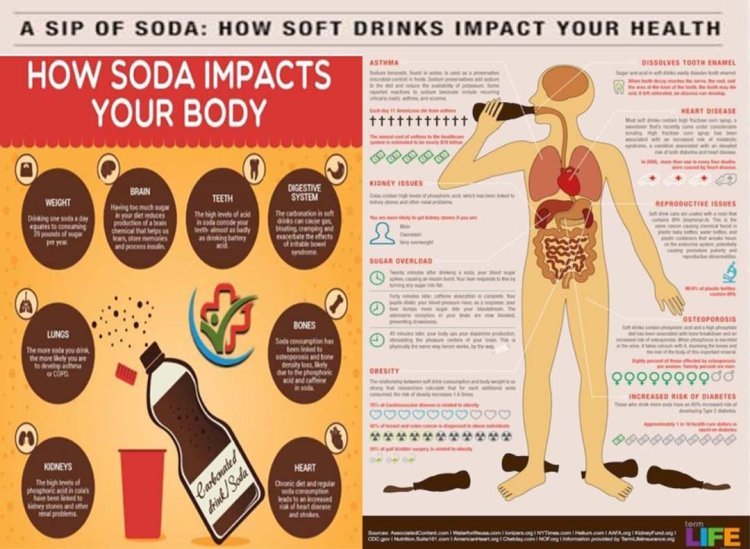Carbonated soft drinks: Health Hazards
Soft drinks specially used as sports drink may contains several electrolytes like sodium, potassium, artificial sweeteners and certain dyes which can actually lead to obesity if the physical work is not vigorous.

By: Kirti Sharma, Gulam Nabi, Mukul, Roopa Rani
Modern lifestyle and increased health consciousness have driven the society to depend upon readymade food for consumption especially the so called “energy drinks”. Energy-boosting drinks furnish the body fluids either lost during workouts or excessive exercise making the body more alert and reestablish the lacking nutrients inside body. Soft drinks specially used as sports drink may contains several electrolytes like sodium, potassium, artificial sweeteners and certain dyes which can actually lead to obesity if the physical work is not vigorous. Carbonated drinks or carbonated water or just soda water are among the most used drinks especially during summers. They contain a little fizz, due to the presence of pressurized carbon dioxide gas to the drinks. Although they provide a refreshing burst of energy, but can have many potential adverse effects too. This article includes the composition of cold drinks, their health benefits and their adverse effect on human being.

Cold drinks available in the market may have many chemicals which can have potential risk to human health. Every 250 ml of almost all cold drinks contain around 27grams of carbohydrate along with 36 grams of sugar may be in the form of fructose, glucose or sucrose. Although the carbohydrate present in the cold drink furnish instant energy to the body but it can also spike the sugar level of the blood, if consumed in excess, high risk of obesity, escalate tooth decay and cavity. Even, few of the cold drinks claim to be rich in the content of vitamin C and minerals or calcium. Many cold drinks also offer low calories or even zero calories which replace sugar with artificial sweeteners like aspartame or sucralose, but this shall raise concern for potential effect on gut microbiota and metabolic disorder.
Many a times, several preservatives, like sodium benzoate, and potassium sorbate, are added to cold drinks just to enhance their shelf life but this can also cause allergic problem or digestive disorders. In order to impart an attractive look to many of the cold drinks, some vibrant coloring agents like allura red AC and tartrazine are also added to them which may lead to hyperactivity in kids and cause certain allergic reactions in some individuals.
The surplus amount of carbonic acid and phosphates present in these beverages also results in eroding tooth enamel and other pro-longed dental issues. Even the consistent intake of such soft drinks may enhance the threat to develop chronic diseases like type 2 diabetes, heart disease and metabolic disorder, liver malfunctioning such as fatty liver. This can also affect the calcium/phosphate ratio which may lead to reduced bone density and even osteoporosis and frequent fractures.
Many a times, the amount of caffeine is also added in the cold drinks which impart potential health risks to pregnant women, and thus it is always suggested to women, not to drink such beverages while pregnant.
In conclusion, it is important to moderate the intake of cold drinks and prioritize healthier options like water or herbal teas.
By:- Kirti Sharma, Gulam Nabi, Mukul, Roopa Rani, Manav Rachna University (Haryana, Faridabad)

















